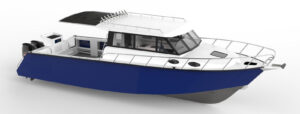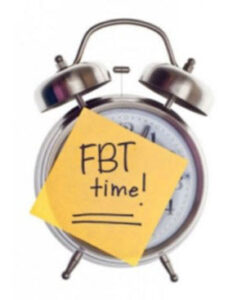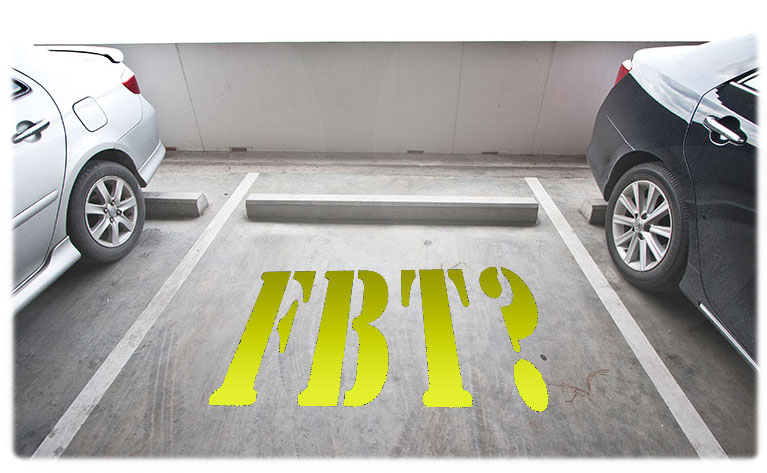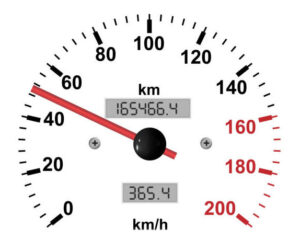
31 March 2022 marked the end of Fringe Benefits Tax (FBT) year 2022. We’ve outlined the hot spots for employers and employees:
FBT updates and problem areas
- Assistance and benefits provided due to COVID-19
- Motor Vehicle problem areas
- Mismatched FBT and income tax amounts
- Business assets personally used by owners and staff
- Not lodging FBT returns
- Salary sacrifice and superannuation guarantee
- Car parking changes
- Travelling or living away from home
- Retraining and reskilling benefits
Many businesses are likely to have provided different types of benefits and assistance to their employees due to COVID-19. It can be pretty challenging to work out whether FBT should apply.
Keep in mind that minor benefits should be FBT exempt where their individual cost is under $300. It is reasonable to treat the benefit as minor (for example, provided infrequently).
Outside of this, and in many cases, specific FBT concessions could be available, but it is essential to work through these concessions carefully.
Working from home
 Office and site closures due to COVID-19 may mean that your employees worked from home for a portion of the FBT year. Many employers have provided their employees with work-related items to assist them during this period.
Office and site closures due to COVID-19 may mean that your employees worked from home for a portion of the FBT year. Many employers have provided their employees with work-related items to assist them during this period.
Portable electronic devices such as laptops and mobile phones are essential for work. Providing such devices to your employees shouldn’t trigger an FBT liability, as long they are used mainly by your employees for work.
Where multiple similar items have been provided during the FBT year, the situation becomes more complex unless your business has an aggregated turnover of less than $50m (previously, this threshold was less than $10m).
If an FBT exemption isn’t available, it’s often worthwhile to consider how to reduce the FBT liability of such items to the extent that the employee could claim a once-only deduction in their personal return (i.e., had they purchased the item themselves).
Emergency assistance
If your business provided emergency assistance to employees due to COVID-19, then fringe benefits tax is unlikely to apply. While we doubt anyone would be thinking about FBT during a crisis, it’s good to know that the tax system does not disadvantage your generosity.
Examples of the kinds of benefits exempt from FBT include immediate relief your business provides to an employee:
• for them to relocate back to Australia, including flights and transport of household goods (e.g., due to health risks around COVID-19); and
• on clothing, food and temporary accommodation if an employee is stranded due to travel restrictions or needs to self-isolate or quarantine.
First aid or other emergency health care you provide to an employee is also exempt if provided by an employee (or a related company employee), or provided at your premises (or those of an affiliated company), or at or near an employee’s worksite.
Protective equipment
Many businesses increased their workplace health and safety processes and infrastructure in response to COVID-19.
If your business provided protective equipment to allow your employees to continue to work safely, this benefit might be exempt from FBT. Unfortunately, this does not seem to be available for all employers.
Typically, an FBT exemption would be available if your employees are involved in cleaning premises or required to be in close proximity with customers or clients. For example, the ATO suggests that this should include hairdressers, cleaners and medical practitioners and hospitality workers.
Rapid antigen testing
 With rapid antigen tests becoming more common, it is essential to keep across the proposed changes in this area.
With rapid antigen tests becoming more common, it is essential to keep across the proposed changes in this area.
Under the current rules, if your business regularly provides your employees with rapid antigen tests so that they can attend their regular place of work, an FBT liability may potentially arise.
The good news is that the government has proposed changes to the rules to clarify that such work-related COVID-19 testing benefits would be FBT exempt. If the laws pass, the changes will apply retrospectively to include benefits provided in the 2022 FBT year.
Just because your business buys a motor vehicle used almost exclusively as a work vehicle does not mean that the car is exempt from FBT. If you use the car for private purposes – pick the kids up from school, do the shopping, use it freely on weekends, garage it at home, your spouse uses it – FBT is likely to apply.
 The private use of work vehicles is firmly in the sights of the ATO and has been for some time.
The private use of work vehicles is firmly in the sights of the ATO and has been for some time.
Private use is when you use a car provided by your employer (including directors) outside of simply travelling for work-related purposes.
While there are two methods to calculate the FBT liability for the private use of a car, the choice of approach can result in very different FBT liabilities.
Logbook Method
Using the logbook method may provide a better result, especially this year if the work vehicle has not been used and garaged at or near the employee’s home.
If your business keeps a valid logbook/odometer records and is eligible to use the logbook method, the ATO will accept that an FBT liability won’t arise if the car:
- Has not been driven at all during the period, even if it has been garaged at home; or
- Has only been driven briefly to maintain the car.
Statutory Method
Instead, by comparison, under the statutory method, the FBT liability could be much higher.
The FBT calculation under this method will include the days the car has been garaged at home and is taken to be available for the employee’s private use (regardless of whether or not the employee has permission to use the car privately).
Similarly, where the place of employment and residence are the same, the vehicle is deemed to be available for the employee’s private use.
The ATO is picking up mismatches between the amount reported as an employee contribution on an FBT return and the income amounts on an employer’s tax return.
 The ATO focuses on mismatches between the employee contributions relating to the fringe benefits, documented on the employer’s fringe benefits tax return, and reporting those contributions as income on the employee’s income tax return.
The ATO focuses on mismatches between the employee contributions relating to the fringe benefits, documented on the employer’s fringe benefits tax return, and reporting those contributions as income on the employee’s income tax return.
In particular, what concerns the ATO is where the employer has incorrectly overstated the employee contributions that they have received on their fringe benefits tax return to reduce the taxable value of the fringe benefits provided (and thereby, the employer’s FBT liability).
The ATO’s approach is very evidence-based; there needs to be documentation to back up whatever the business is claiming.
Take the ATO’s example of the property company that claimed deductions for a boat on the basis that it was used for marketing the company. Large deductions were claimed relating to running the boat, which attracted the ATO’s attention, and a review was carried out.
 The ATO discovered the boat was used by the director and other employees for private trips and to host parties for people who had paid to attend the company’s property seminars.
The ATO discovered the boat was used by the director and other employees for private trips and to host parties for people who had paid to attend the company’s property seminars.
The ATO determined the director had purchased the boat primarily for their own private use when looking at the overall business activities. As a result, they disallowed the deductions, and the personal use of the boat was a fringe benefit for the company’s employees.
The company had to lodge an FBT return and pay the resulting FBT liability and the income tax shortfall, interest, and penalties.
The ATO is concerned that some employers are not lodging FBT returns or lodging them late to avoid paying tax.
While we hope the ATO understands that this was a challenging year for many businesses, it’s likely the ATO will still pay close attention to any employer that is:
- Registered for FBT but lodges late.
If your business is likely to face delays in lodging the FBT return, it’s usually a good idea to get in touch with the ATO early and ask for an extension request;
or
- Not registered for FBT.
Suppose your business employs staff (even closely held employees such as family members) and is not registered for FBT. In that case, you must review your position and be confident that you do not have an FBT liability.If the business provides cars, car spaces, entertainment (food and drink), reimburses private (not business) expenses, employee discounts, etc., you will likely be providing a fringe benefit. Make sure you review the FBT client questionnaire we can send you!
 From 1 January 2020, new rules came into effect to ensure that an employee’s salary sacrifice superannuation contributions cannot be used to reduce the amount of superannuation guarantee (SG) paid by the employer.
From 1 January 2020, new rules came into effect to ensure that an employee’s salary sacrifice superannuation contributions cannot be used to reduce the amount of superannuation guarantee (SG) paid by the employer.
Under previous rules, some employers were paying SG on the salary less any salary sacrificed the employee’s contributions. Previously, employers were required to contribute a percentage (from 1 July 2021, this is 10%) of an employee’s Ordinary Time Earnings (OTE), and they could choose whether or not to include the salary sacrificed amounts in OTE.
Under the new rules, the SG contribution is a percentage (from 1 July 2021, this is 10%) of the employee’s ‘ordinary time earnings (OTE) base’. The OTE base is the employee’s OTE, and any amounts sacrificed into superannuation that would have been OTE but for the salary sacrifice arrangement.
A controversial ruling from the ATO expands the scope of the FBT rules dealing with car parking benefits. The legislation changes the ATO’s view on what constitutes a commercial parking station. Where an employer provides:
- Car parking facilities for employees within 1km of a commercial parking station, and
- That commercial car park charges more than the car parking threshold
($9.25 for the year ended 31 March 2022)

A taxable car parking fringe benefit will usually arise unless the employer is a small business and can access the car parking exemption.
The ruling is now finalised, but the ATO has stated it will apply the new expanded definition of a commercial parking station from 1 April 2022. If you provide car parking facilities to team members, it is crucial that you either:
- have certainty that you can access the small business exemption, which has a more generous turnover threshold of less than $50m from 1 April 2021 onwards;
or
- understand the implications of the ruling to the car park facilities you provide.
Historically, travel allowances have confused many businesses.
Also, with the ATO recently finalising its key guidance on travel costs, the ATO is likely to focus on benefits relating to transport, meals and accommodation.
If your business provides travel allowances to its employees, you will typically need to consider whether they live away from home or just travel overnight for work.
Where your employees are travelling overnight for work, travel allowances paid concerning such travel are usually assessable to your employees. However, they might be entitled to claim deductions for some of their travel expenses personally.
 For employees living away from home, these living away from home allowances are dealt with instead through the FBT system as a fringe benefit.
For employees living away from home, these living away from home allowances are dealt with instead through the FBT system as a fringe benefit.
While the taxable value of the benefit is usually the amount paid, some generous concessions can allow for some or all of the allowance to be FBT exempt if certain conditions are met.
Therefore, making this distinction is essential.
The ATO has recently finalised its guidance in TR 2021/4 on when allowances should be classified as a travel allowance or a living away from home allowance. Helpfully, the ATO has also finalised a ‘safe harbour’ style approach in PCG 2021/3, which can be used specifically for this purpose.
Recognising a change in the mix of skills required in the modern labour force, the Government has passed new rules that provide a specific FBT exemption for employers that offer retraining and reskilling benefits to their employees.
 If the conditions are met, an FBT exemption is available for education or training benefits (such as course fees) provided by your business to your employees whose jobs are redundant (or soon to be redundant). Importantly, this FBT exemption can apply even if your employees are redeployed to another part of your business.
If the conditions are met, an FBT exemption is available for education or training benefits (such as course fees) provided by your business to your employees whose jobs are redundant (or soon to be redundant). Importantly, this FBT exemption can apply even if your employees are redeployed to another part of your business.
The rules apply retrospectively to education or training benefits provided on or after 2 October 2020, which applies to the 2022 FBT year!
Fringe Benefits Tax – Housekeeping

It can be challenging to ensure the required records are maintained concerning fringe benefits – primarily as this may depend on employees producing records at a particular time. Suppose your business has cars, and you need to record odometer readings on the first and last days of the FBT year (31 March and 1 April); remember to have your team take a photo on their phone and email it to a central contact person. In that case, it will save running around to every car or missing records where employees forget.
We are here to help
If you have any questions or concerns on how Fringe Benefits Tax could impact you, please contact our Client Care Team on (08) 9227 6300 or via our Contact Us Page for more information and help with your FBT return.




